With tensions high ahead of the Ramadan holiday, reservists from the IDF’s elite Lotar Eilat special forces unit left their territory in Israel’s South and joined troops in the West Bank to carry out arrests.
A series of deadly terrorist attacks in one week killed 11 people in Israel, after which security forces were then placed on high alert. The escalation came just ahead of the start of Ramadan, a period of usually high tension between Israel and Palestinians in the West Bank and the Gaza Strip.
Alongside a number of measures aimed at calming the streets, security forces also carried out nightly arrests aimed at thwarting attacks.
Lotar Eilat, which is a territorial unit that acts as a swift intervention team in Israel’s resort city, rarely takes part in operational missions in other locations. The last time they joined troops in the West Bank was in 2019.
“We understood that we have to do operational missions to retain our capabilities and get even better,” said Lt.-Col. “A,” the commander of Lotar Eilat. “The operational missions, even if it happens a few times, really improve our readiness.”
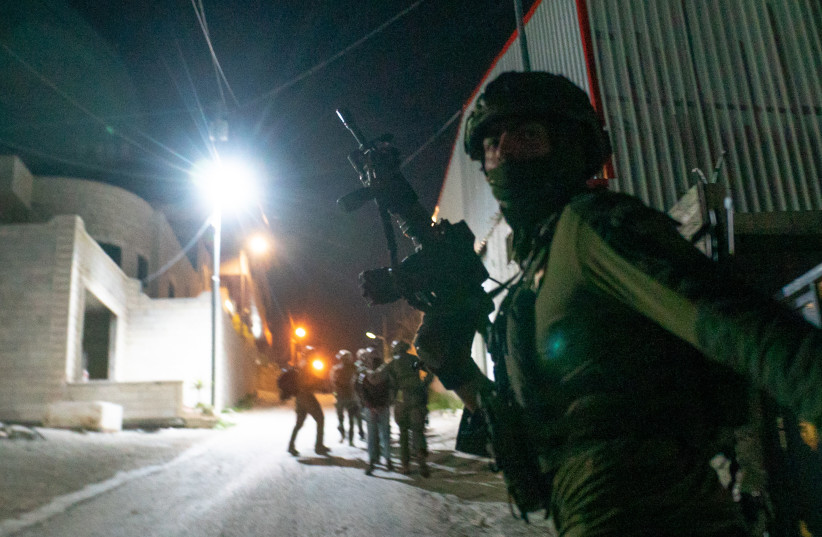
According to the commander, while the reservists usually spend their time training for terrorist attacks in the country’s most southern city, joining troops during nightly arrest raids allowed him to see where his forces need improving.
Command Sgt.-Maj. “R,” team commander of the Breacher unit in Lotar Eilat, told The Jerusalem Post that the arrests carried out “showed our true capabilities.”
“Without a doubt, when we came to the West Bank we bring better capabilities than other units,” he said, adding that the troops in the unit spend their days perfecting their skills and tactics.
R, who has spent 25 years in Lotar and a decade in the breacher unit, explained that while taking part in arrests is not something his soldiers do on a regular basis, they “take it seriously like all events, like all incidents. It’s the real deal.”
“There is no other unit in the IDF that has people who have spent years working on their profession,” he said.
“We train more than usual combat troops, and more than any reservist. We are professionals and at the ready 24/7 and able to get to any event within minutes.”
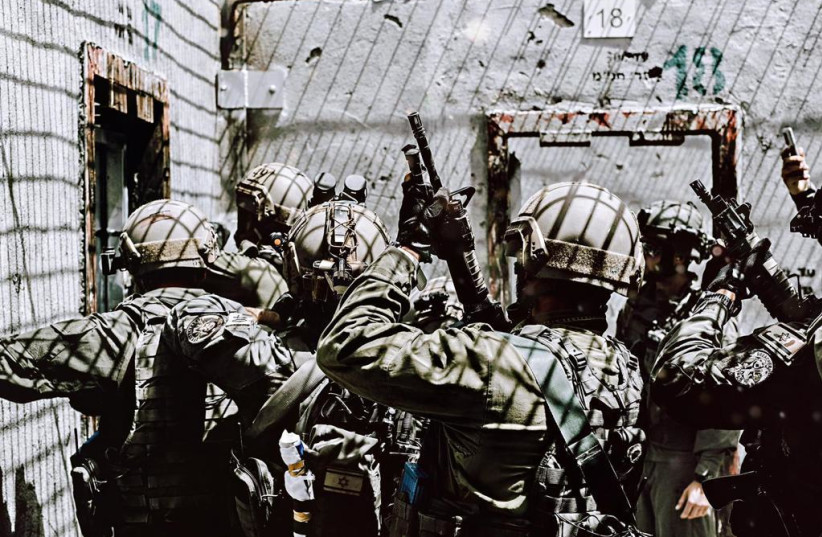
One event even saw R leave his wife shortly after she gave birth.
“I had my uniform in the car and I changed in the parking lot,” he said, adding that while he is currently in one of his businesses in the city, he will be heading to central Israel later in the day for a drill at the Adam Facility.
The IDF’s Adam Facility near Jerusalem is home to the IDF’s Lotar Counter-terror school and is divided into different sections according to specialization, including high-altitude rappelling, sniping, robotics, climbing and rescue.
Lotar Eilat acts as a swift intervention force in the resort city, since Eilat is far from the center of the country and would take between two to three hours to bring forces to any event.
According to R, the members of Lotar Eilat are made up of hotel managers, city workers, waiters and security personnel who are spread across the city and who know Eilat like the backs of their hands.
“The moment there is an event, our response is strong and professional. We are training exactly for that, to fight and give the strong impact that is necessary,” he said. “If we need to enter a hotel, we know it. We know all the entrances and know how to use special means on buildings if necessary. That’s our specialty.”
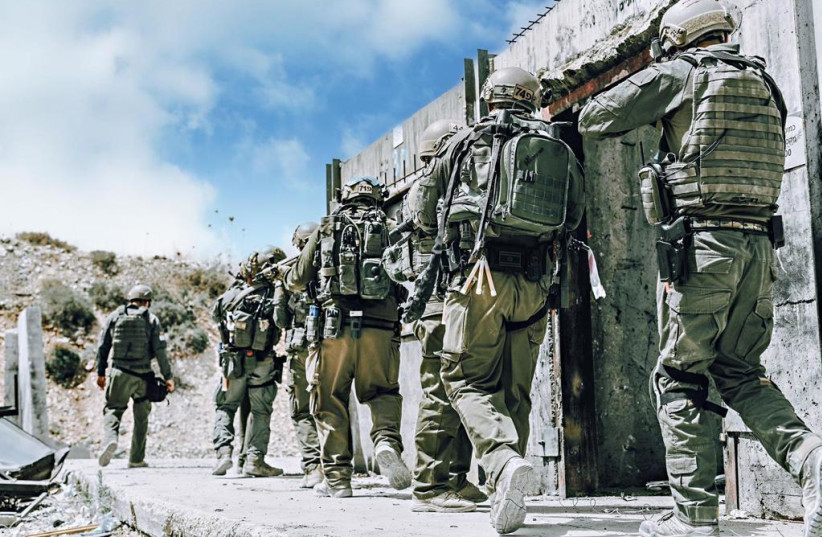
ACCORDING TO R, troops from Lotar don’t train only in sterile environments like inside a military base, but also inside hotels where actual events such as hostage-taking can take place.
“This is our playground, our training compound. We drill on the real thing,” he said.
Formed in the 1970s following the Ma’alot massacre, the unit has matured over the years and has perfected tactics and integrated advanced platforms and weapons including drones and 4x4 vehicles.
The special forces unit differs from all other units, as all the troops are reservists who live with their families in the city and have regular day jobs. The forces, who all have combat backgrounds and served in elite units during their regular service, train monthly and are always prepared to rush to the scene of an attack in the coastal city and surrounding areas.
“We need to know how to act and respond to terror attacks in the city and surrounding areas,” said A.
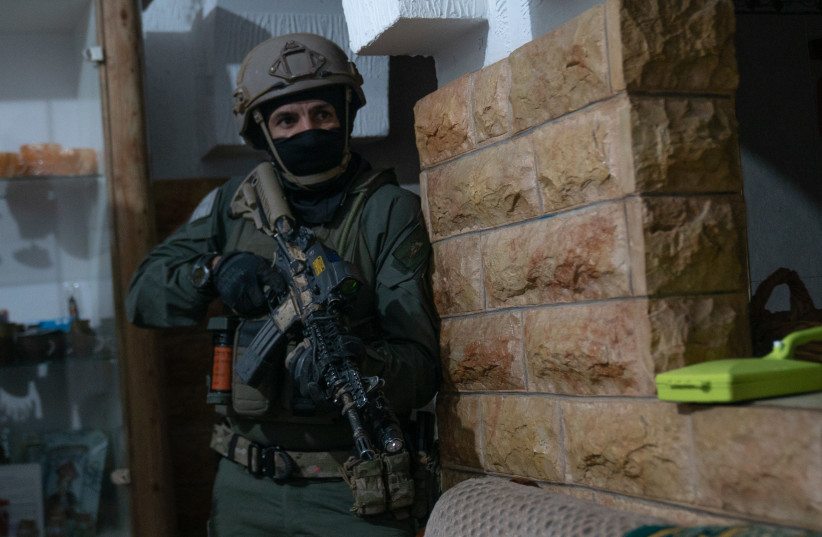
As Eilat shares borders with Jordan and Egypt’s Sinai Peninsula, A explained that terrorists might infiltrate into Israel to carry out attacks in the city. However, the recent wave of deadly attacks shows that terrorism can also be “in house.”
“There can be terror attacks like the one in Bnei Brak and there can also be events like hostage-taking inside hotels or attacks against tourist locations, since a lot of people come here for vacations,” he said. But, “it doesn’t matter from where the terror comes from and who is behind the weapon – if he is from the West Bank or within Israel – we know how to act against them.”
While there has not been a terrorist attack in Eilat in several years, troops from the unit responded to the cross-border attack by militants in the Sinai who opened fire on Egged No. 392 in 2011 as it was traveling on Highway 12 in the Negev. Several minutes later, an improvised explosive device detonated next to an Israeli patrol followed by an anti-tank missile fired toward a civilian car.
A total of six civilians and two security forces (one YAMAM counter-terrorism police sniper and a Golani soldier) were killed.
“We are on the borders of Jordan and Egypt, and any infiltration by a terrorist, even by swimming or jet ski, needs us to respond,” R said.
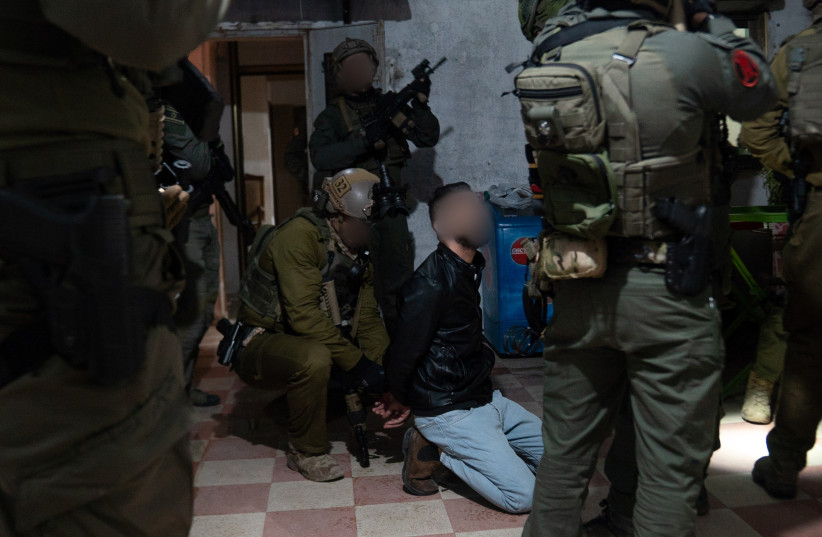
A, who has 20 years of experience in the security establishment, served in the Israel Police’s YAMAM counter-terrorism unit that was responsible for neutralizing a terrorist cell from the Jenin area on Friday. The three men had been armed with assault rifles, grenades, and other weapons. Israel’s Shin Bet (Israel Security Agency) called them a “ticking” bomb.
A fourth suspected member of the cell was arrested on Sunday with the help of the IDF’s Oketz canine unit.
And while the atmosphere is tense, it is unlikely to escalate into a war like Operation Guardian of the Walls that broke out last May.
“The country is always going through waves,” A said. “It’s not surprising that this is happening. The spark is always lighting on and then it goes off.”
But R and all the other troops in Lotar are always on alert, because it’s personal.

“We are really protecting our homes, our friends and their businesses. I’m really protecting my family. We know that if a terrorist comes, we know how to respond better than anyone who uses their weapon once or twice. That’s what’s special about this unit. Ninety percent of the time, I will be the one who will respond to any event,” he said.
“And we see what is happening around the country, and it can be civilians who stop terror attacks. But we are experts and more than qualified. When we shoot, we shoot. We don’t talk.”